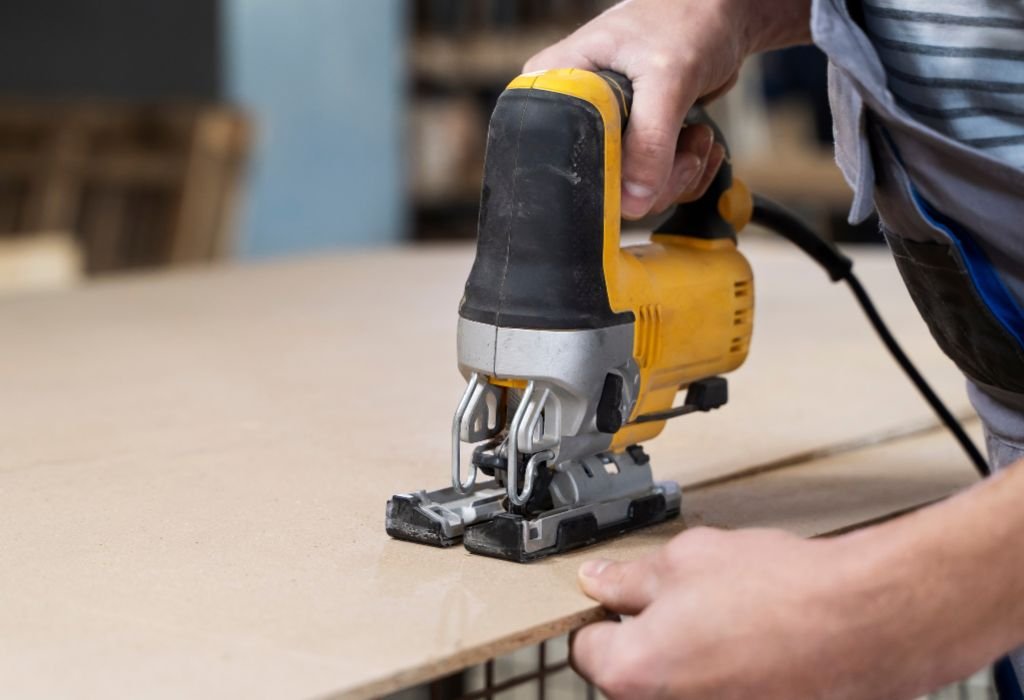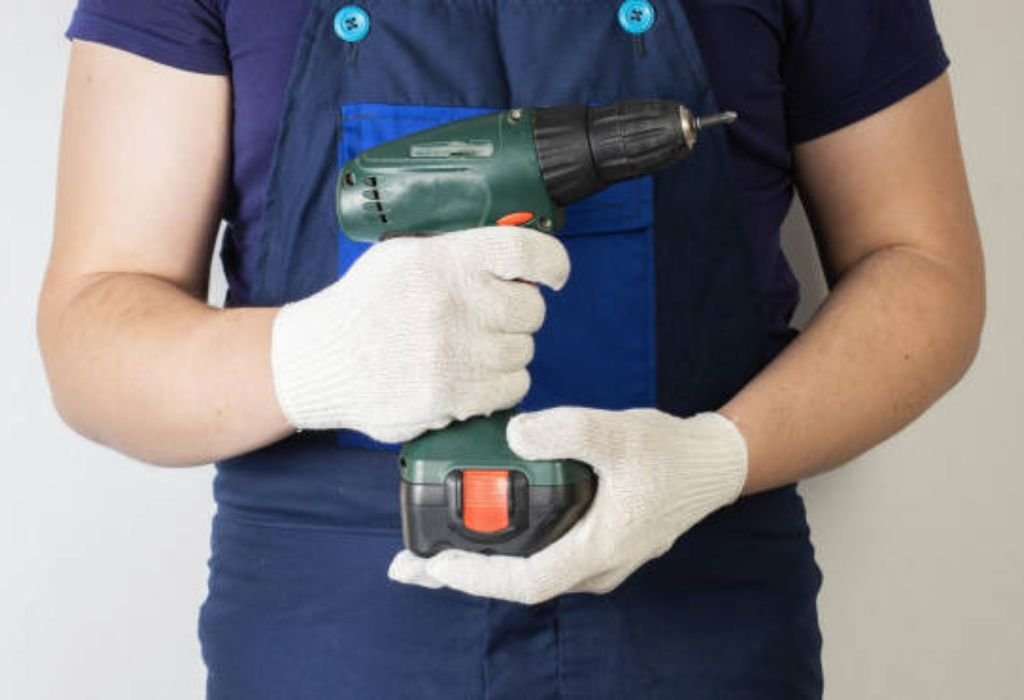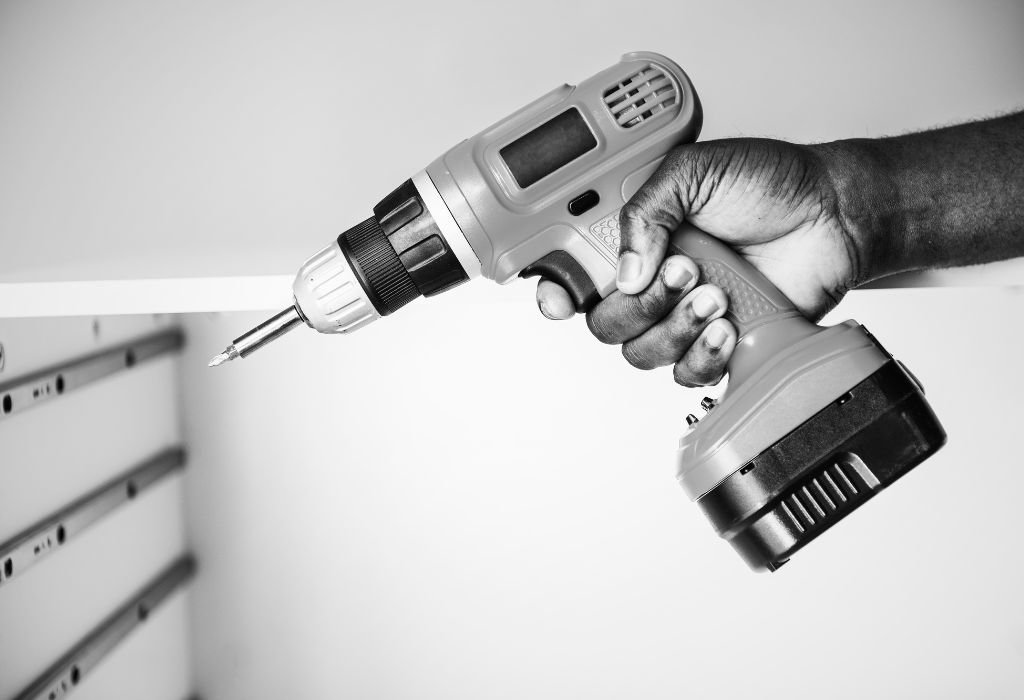Buying a cordless drill might seem like a simple decision at first, but with so many types, models, and features available on the market, choosing the right one can quickly become overwhelming.
The drill that works perfectly for a homeowner doing light DIY repairs is very different from the heavy-duty model a contractor depends on for daily professional work.
Cordless drills vary in size, voltage, torque, speed settings, chuck capacity, and additional features, making it essential to understand the differences before investing in one.
If you choose the wrong type of cordless drill, you could end up with a tool that lacks the power for your tasks or is unnecessarily heavy and complicated for simple jobs.
On the other hand, selecting the right cordless drill ensures smooth drilling, efficient screw driving, and the confidence that your projects will be completed with ease and precision.
Key factors like motor technology, battery performance, ergonomics, and brand reputation play an important role in determining which cordless drill best suits your needs.
According to Grand View Research, the global power tools market surpassed $30 billion in 2022, showing just how many people worldwide rely on drills for both professional and personal use.
This guide will break down the different types of cordless drills, explain their features, and help you decide exactly what type of cordless drill you should buy to match your projects and budget.
Understanding the Different Types of Cordless Drills

Cordless drill drivers are the most common type and are designed for general household use, making them ideal for simple DIY projects like furniture assembly or hanging shelves.
They provide a good balance of drilling and screw-driving capabilities without being overly complicated or heavy.
Hammer drills are built for tougher applications, particularly when drilling into concrete, brick, or masonry.
These drills use a hammering action combined with rotation to power through hard materials that a standard drill cannot handle.
Impact drivers are another popular type, designed for delivering high torque when driving screws and bolts.
They are particularly useful for construction projects, decking, or any task where a lot of fastening is required.
Right-angle drills are compact models with a head positioned at 90 degrees, which makes them perfect for working in tight or awkward spaces.
They are most often used by electricians, plumbers, and carpenters who need to drill between studs or in confined areas.
Some specialized drills combine features, offering hybrid models that serve multiple purposes.
These tend to be more expensive but are useful for professionals who want one tool that can handle varied tasks.
What is a drill driver?
A versatile drill for general household and light-duty projects.
What is a hammer drill?
A drill that combines rotation and hammering to power through masonry.
What is an impact driver?
A high-torque tool made for driving screws and bolts.
What is a right-angle drill?
A compact drill designed for working in confined spaces.
Do I need more than one type?
Not always, but professionals often own several types for different jobs.
Key Features to Consider Before Buying
The battery is one of the most important features to examine, with modern lithium-ion packs offering longer run times, faster charging, and less weight compared to older nickel-cadmium designs.
Choosing the right voltage also matters, as 12V models are light and compact while 18V–20V models deliver more power for heavy-duty work.
Torque settings are critical because they determine how much twisting force the drill can apply, which is important when drilling into harder materials or driving large screws.
Variable speed controls allow users to adjust the drill’s performance to suit specific tasks, providing greater precision.
Chuck size is another key factor, with 3/8-inch chucks suited for general use and 1/2-inch chucks offering greater versatility with larger drill bits.
This determines the range of applications your drill can handle.
Weight and ergonomics should not be overlooked, as a lighter drill is easier to handle during long jobs, while a well-balanced grip reduces fatigue.
Some drills also feature LED lights and belt clips, which enhance convenience and usability.
Are lithium-ion batteries better?
Yes, they are lighter, more efficient, and hold charge longer.
What voltage do I need?
12V is fine for light tasks, while 18V–20V is better for heavier use.
Does torque matter?
Yes, higher torque provides more drilling and fastening power.
What chuck size is best?
3/8-inch for light-duty tasks, 1/2-inch for professional use.
Should I worry about weight?
Yes, a heavy drill can cause fatigue during long projects.
Best Cordless Drill Options for Homeowners

For most homeowners, a simple drill driver is more than enough to handle everyday needs.
These drills are affordable, compact, and easy to use for light repairs and projects.
A 12V drill is typically the best option for beginners.
It provides enough power for furniture assembly, shelf installation, and light woodworking without being intimidating.
An 18V drill is a step up for those who want more versatility.
It gives homeowners the ability to handle tougher projects while still being user-friendly.
Brands like Black+Decker, Ryobi, and entry-level DeWalt models are popular choices among DIYers.
They balance performance, price, and reliability.
Compact drills also save space and are easier to store in toolboxes or small workshops.
This makes them practical for people who don’t use them daily.
Which drill is best for beginners?
A lightweight 12V drill driver.
Is 18V too powerful for home use?
No, it gives extra flexibility for tougher projects.
Do I need a hammer drill at home?
Only if you plan on drilling into masonry or concrete.
What brand is most affordable?
Black+Decker and Ryobi offer budget-friendly options.
Are compact drills good?
Yes, they are light, easy to handle, and convenient to store.
Best Cordless Drill Options for Professionals
Professionals need tools that can handle daily use without failing.
Heavy-duty 18V–20V models are the most common choice for contractors.
Hammer drills are essential for those working with masonry, stone, or concrete.
They provide the strength needed for construction and renovation projects.
Impact drivers are another professional favorite.
They excel at driving long screws and bolts quickly and efficiently.
Brushless motors are preferred for their durability, efficiency, and longer lifespan.
They deliver consistent power and require less maintenance than brushed motors.
Milwaukee, Makita, and DeWalt are the most trusted brands for professionals.
These companies offer rugged, high-performance drills designed for tough environments.
Which drill do contractors use?
18V or 20V hammer drills and impact drivers.
Do professionals use multiple drills?
Yes, they often carry both hammer drills and impact drivers.
Is Milwaukee better than DeWalt?
Both are excellent, with strong reputations in the industry.
Do pros need brushless motors?
Yes, they provide better durability and performance.
Are high-voltage drills worth it?
Yes, they are designed for demanding professional tasks.
Cordless Drill Accessories That Matter
Accessories greatly expand the functionality of cordless drills.
The right set of drill bits makes it possible to work with wood, metal, and masonry.
Screwdriver bit kits are essential for driving different types of fasteners.
They turn a drill into a versatile fastening tool.
Extra batteries are invaluable for longer jobs.
They allow professionals and DIYers to keep working without waiting for recharges.
Carrying cases and organizers help keep everything in order.
They also protect drills and accessories during transport.
Right-angle adapters and other attachments make it easier to work in tight or awkward spaces.
These additions increase flexibility and convenience.
Do I need multiple drill bits?
Yes, different materials require different bits.
Should I buy extra batteries?
Yes, they save time during extended projects.
What accessories are essential?
Drill bits, driver bits, and extra batteries.
Are universal bits compatible?
Most work with standard chucks.
Do attachments improve performance?
Yes, they add versatility to your drill.
Cordless Drill Buying Tips and Mistakes to Avoid

One of the biggest mistakes buyers make is purchasing the cheapest drill available without checking its features or suitability.
This often leads to frustration and wasted money when the drill fails prematurely.
Another mistake is buying a drill that is either too weak or too powerful for the intended tasks.
This results in inefficiency, discomfort, or unnecessary expense.
Ignoring ergonomics and comfort is also a problem.
A drill that feels unbalanced or too heavy will cause fatigue during long projects.
Always check the warranty and brand reputation before purchasing.
A good warranty provides peace of mind and support.
Investing in high-quality batteries is also essential.
Weak or outdated batteries can make even the best drill useless.
What’s the biggest mistake buyers make?
Buying a drill that doesn’t match their needs.
Should I always buy the most powerful drill?
No, only buy what fits your tasks.
Do warranties matter?
Yes, they protect your investment.
Are cheap drills worth it?
Not if they fail quickly under use.
Should I test before buying?
Yes, hands-on testing helps you choose the right drill.
Future of Cordless Drills
Cordless drill technology is evolving quickly, with brushless motors becoming more common across all price ranges.
These motors are more efficient, longer-lasting, and require less maintenance.
Battery technology is also improving.
New lithium-ion and even solid-state designs promise longer run times and faster charging.
Some manufacturers are experimenting with smart drills.
These models feature electronic torque control and app-based monitoring.
The trend toward lighter but more powerful designs continues.
This makes modern drills easier to handle without sacrificing strength.
As tool ecosystems expand, many brands now design drills to integrate seamlessly with other cordless tools.
This means batteries and chargers can often be shared across different devices.
What are brushless drills?
Drills with motors that are more efficient and durable.
Will batteries improve in the future?
Yes, expect longer runtimes and faster charging.
Are smart drills real?
Yes, some now feature electronic controls and apps.
Will drills get lighter?
Yes, while still becoming more powerful.
Is cordless better than corded?
Yes, because of convenience, portability, and improving power.
Conclusion
The type of cordless drill you should buy depends entirely on your needs, budget, and level of experience.
A simple 12V–18V drill driver is usually the best choice for homeowners and casual DIYers.
Professionals should invest in heavy-duty 18V–20V drills with brushless motors for durability and efficiency.
Hammer drills and impact drivers are also essential for construction and demanding applications.
Accessories such as drill bits, extra batteries, and attachments make any drill more versatile.
Investing in quality tools and batteries saves time and money in the long run.
By carefully considering your requirements and matching them to the right drill type, you’ll avoid frustration and ensure reliable performance.
The right cordless drill is not just a purchase but an investment in productivity, efficiency, and peace of mind.

I’m John F. Nicholas, the founder, lead writer, and drill enthusiast behind 101drill.com. With years of hands-on experience in power tools and DIY projects, I created this platform to share practical knowledge, expert tips, and real-world insights to help others master the art of drilling.
